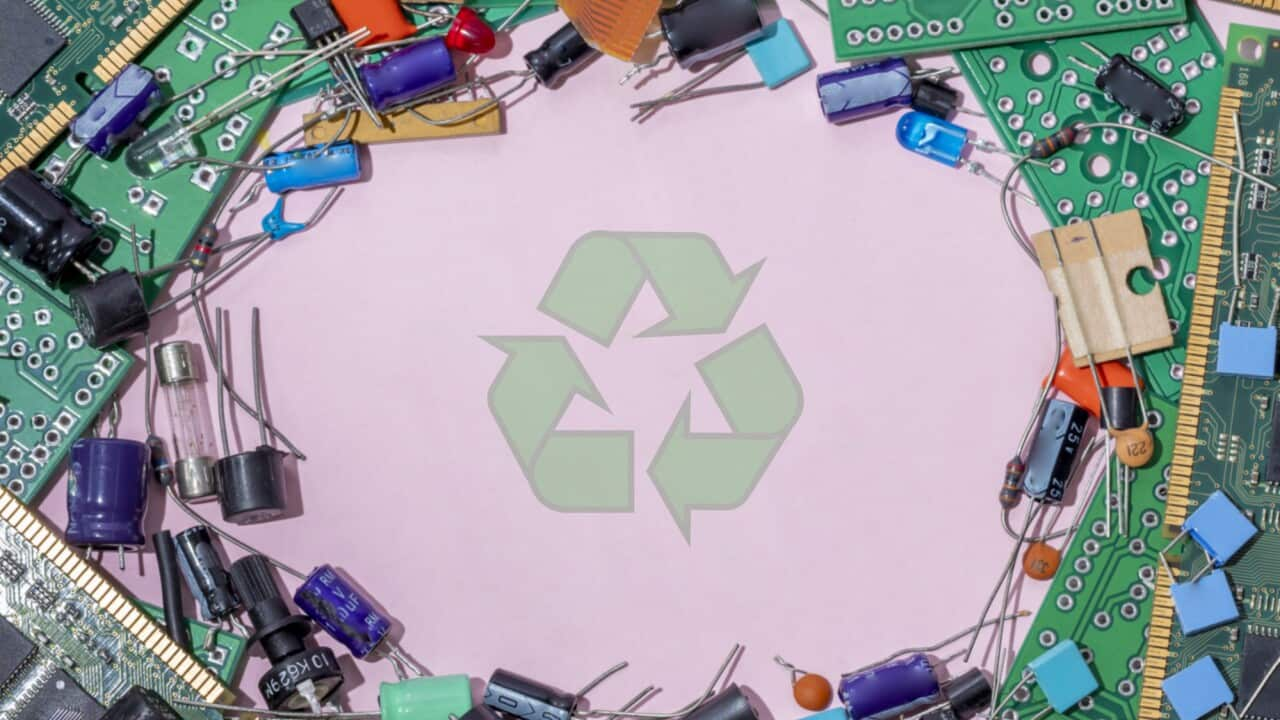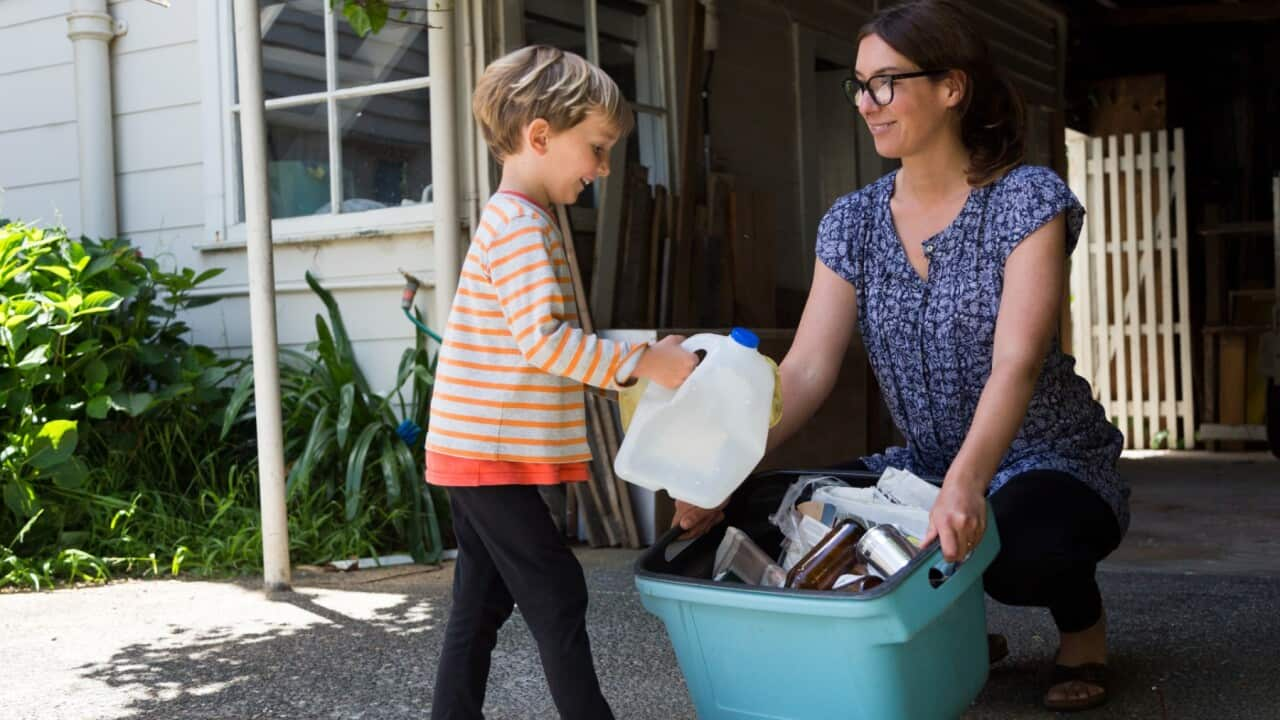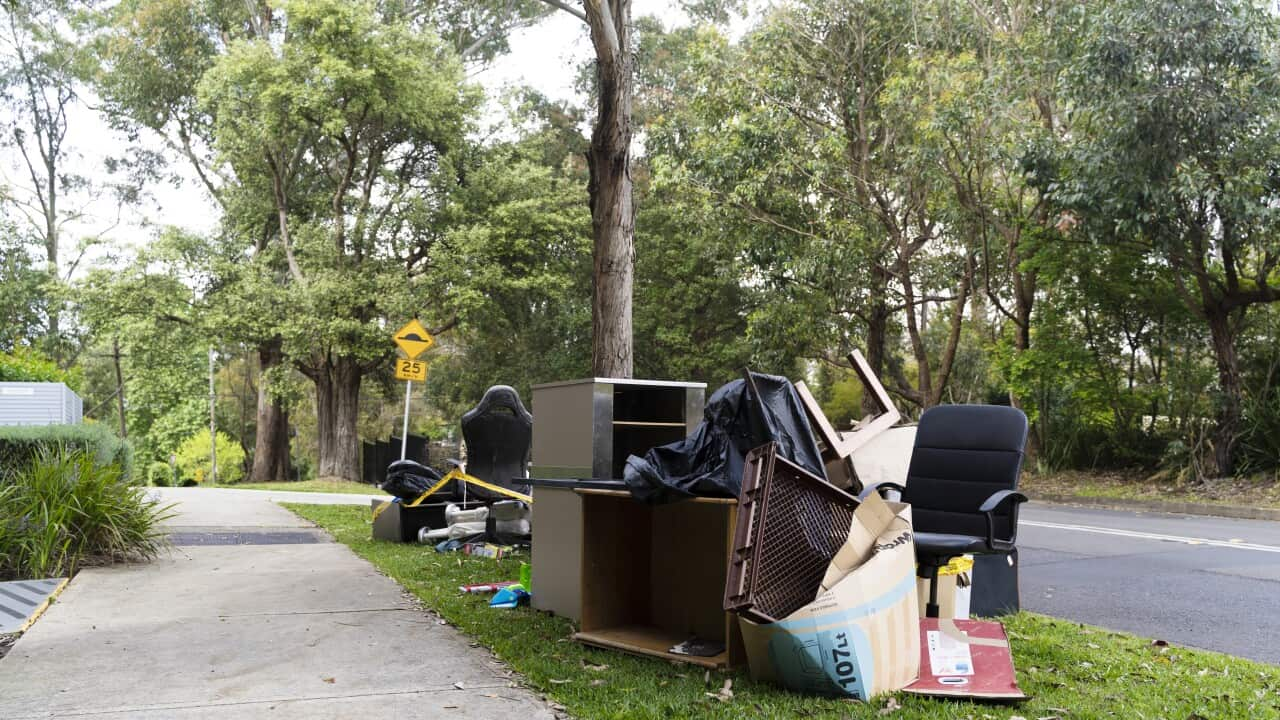
When batteries are compressed and crushed in waste collection trucks and facilities, they can spark fires putting lives and the environment at risk. Credit: PhotoAlto/Milena Boniek/Getty Images

Did you know that e-scooters and bikes run with lithium-ion batteries? These, or in fact any battery, should never go in your household waste or recycling bins. Credit: Solskin/Getty Images

The Australian government runs a recycling program free to consumers for televisions and computers, including printers, computer parts and peripherals Source: Moment RF / Schon/Getty Images

Recycled e-waste can get a new life, for example in road base and construction materials or new batteries, while valuable metals are recovered from dismantled devices. Credit: Mindful Media/Getty Images








